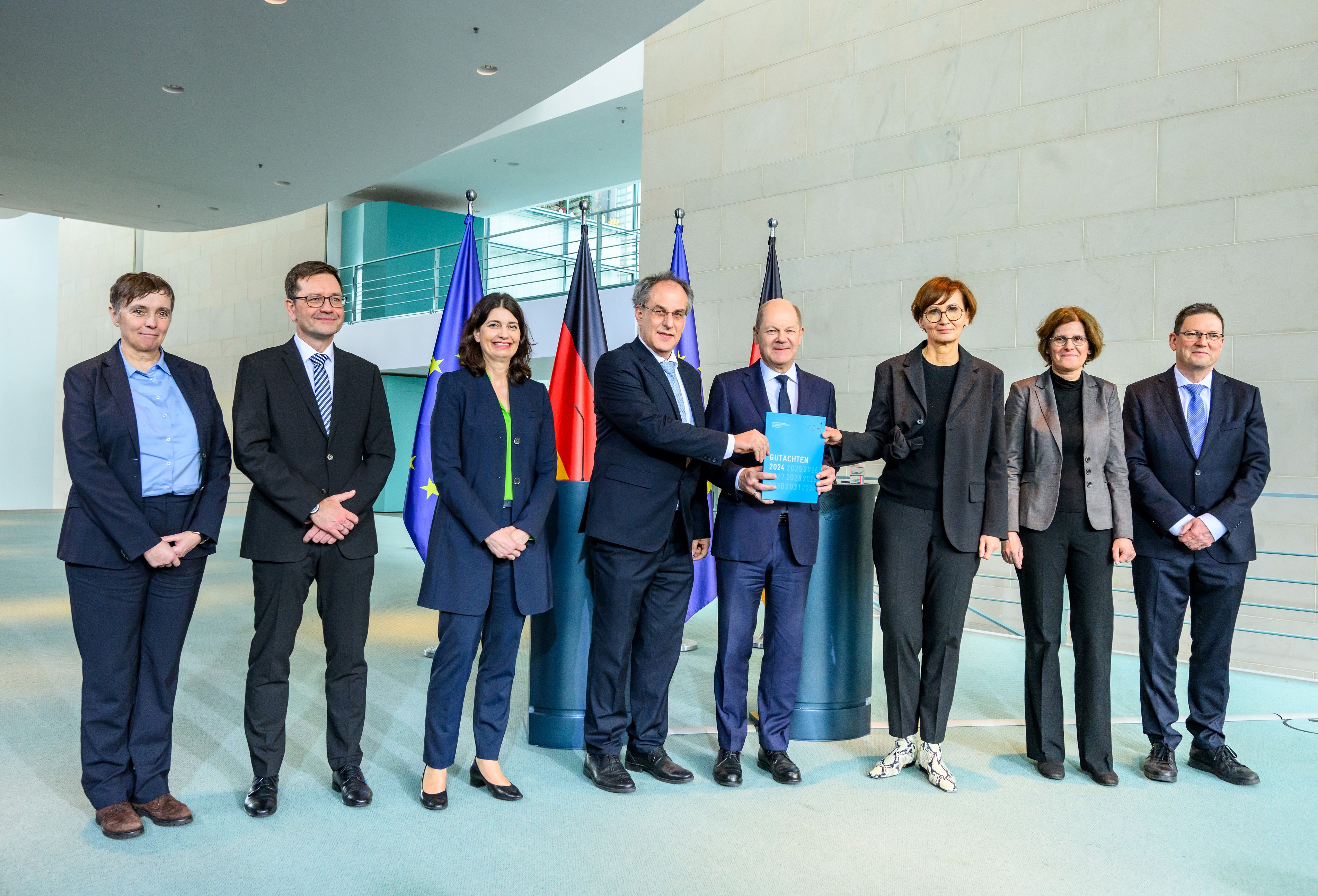The Commission of Experts for Research and Innovation (Expertenkommission Forschung und Innovation-EFI), including Prof Dr Dr h.c. Friederike Welter (IfM Bonn/University of Siegen), presented its annual report to Federal Chancellor Olaf Scholz and Federal Research Minister Bettina Stark-Watzinger today. The six members of the commission emphasise the need for social innovations that, in conjunction with technological innovations, can contribute to overcoming the major challenges facing society. The Expert Commission defines social innovations as new individual and collective behaviours and forms of organisation that contribute to solving social or economic problems and thus create added value for society.
Improving the data basis
In its annual report, the Commission of Experts supports the development of cross-departmental key figures and a meaningful scientific database, as outlined in the National Strategy for Social Innovation and Enterprises for the Common Good. It also recognises the need to integrate existing data sets into an overall concept in the best possible way. "The development of key figures and data collection on social innovations must be designed in a way that enables an appropriate measurement of success and impact analysis of policy measures to promote social innovations," says the Chairman of the Expert Commission, Prof Dr Uwe Cantner (University of Jena). "The aim must be to develop a comprehensive, representative data basis that is consistent over a longer time," adds Prof Dr Friederike Welter. "We are aware of the hurdles involved in establishing a standardised and representative database. The diversity of definitions of social innovations makes this task even more difficult."
Profit-orientated companies also generate social innovations
Social enterprises are often perceived as particularly important sources of social innovation, as this type of company combines financial sustainability with social commitment. However, the Expert Commission emphasises that profit-oriented companies also create, implement and disseminate social innovations. "It is particularly companies in research-intensive industries and knowledge-intensive services that also initiate social innovations," says the IfM President. "Social innovations are often found in internal company processes, for example in the form of working from home, flexible working-life models or mentoring programmes," adds the Chairman of the Expert Commission, Prof. Dr Uwe Cantner. "In addition, products and services are offered that enable users to adopt socially innovative behaviour, such as tutoring platforms or telecare."
Make existing funding formats more accessible for social innovations
Social innovations should be an important part of the design of existing funding programmes due to their importance to societal challenges. "The promotion of social innovations does not require special programmes tailored solely to them but should be integrated into existing innovation promotion programmes. The mutual reinforcement between social and technical innovations can also be taken into account in funding decisions in this way," states Prof Dr Uwe Cantner. "As with technological innovations, the financing of innovation activities is also a major obstacle to innovation in the case of social innovations." In addition to promoting the emergence of social innovations, the transfer and testing of locally successful social innovations in other contexts should also be an important part of the support. "The platform for social innovations envisaged in the National Strategy for Social Innovations and Enterprises for the Common Good is particularly important for their further dissemination," emphasises Prof. Dr Friederike Welter.
